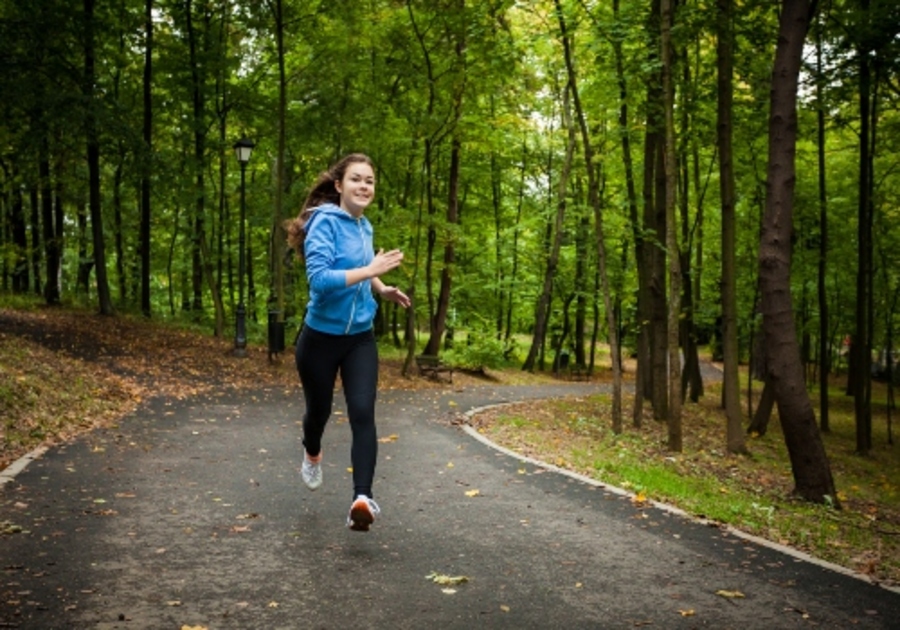We all know that during the adolescence years, our teenagers want to hang out more with their friends and maybe a little less with their parents. Normal? Yes! But when they are stuck at home 24/7 with just the family, it can get frustrating for them.
Physical distancing restrictions can be challenging for families and for teenagers. Technology and all the various social media platforms make it easier for teens to connect with their friends socially. With online classes, chatting with friends and watching television, they are spending more than their usual time on screens. It is to be expected, in this COVID era, that screen time is up. That’s ok, but how are they doing with their physical activity? They may not be doing their usual sports or activities, so their physical activity may have decreased in the last month.
For health benefits, the Canadian Physical Activity Guidelines, recommends that teenagers accumulate 60 minutes of moderate to vigorous intensity physical activity daily. This should include:
- Vigorous activity at least 3 days a week.
- Activities that strengthen bones and muscles 3 times a week.
- More daily physical activity provides greater health benefits
The Canadian 24-Hour Movement Guidelines for Children and Youth expand on the Physical Activity Guidelines and help us understand that even if teens do their 60 minutes of activity per day, it should not stop there for health benefits. These 24-hour guidelines are broken down into 4 categories defining how time should be spent for maximal health benefits:
Sweat: Accumulate 60 minutes of moderate-to vigorous intensity physical activity daily. 3 of those days should be vigorous intensity physical activity.
Step: Several hours of a variety of structured and unstructured light physical activity.
Sleep: Uninterrupted sleep – 9-11 hours per night for 5-13-year-old and 8-10 hours per night for those aged 14-17 years, with consistent bed and wake-up times.
Sit: No more than 2 hours per day of recreational screen time. Limited sitting for extended time.
How can we balance these recommendations to keep our teenagers healthy while staying at home during COVID-19?
Sweat: It is important for teens to move daily and sweat it out. How to help:
- Ask them to schedule 60 minutes of activity of their choice at a convenient time.
- Find home workouts online, apps and YouTube. Local gyms may also have options for online fitness classes. See ParticipAction for more ideas.
- Biking, inline skating, skateboarding, running all can be fun for teens done alone or with family (keeping physical distancing in mind).
Step: it is also important to just be moving around. How to help:
- Let them go for a walk or a leisure bike ride around the neighbourhood.
- Promote stretch breaks every hour.
- Find a yoga class online.
- Ask them to help with household chores. Put on some music to makes it fun!
- Ask them to help with some yard work, cleaning the car, gardening, or supporting our 70+ neighbours with these tasks if possible. (keeping physical distancing in mind)
Sit: Not counting schoolwork online. Let them socialize with their friends, it’s important for their mental health and wellbeing, even if online. How to help:
- Remind them to take little breaks every 60 minutes or so. Breaking up these long sedentary periods will be good for them, and their eyes!
- Try to set limits of how long they can chat with their friends at one time.
- Limit tv time. Do a family movie night or watch a tv show together, making it more of an event as opposed to daily routine.
Sleep. Teens may be sleeping in more than usual, so they may be getting enough hours. However, their sleep habits may be off. Here is how to help:
- Establishing regular sleep hours with a set time where all screens are off.
- Getting them up at a regular time, for online classes or morning activity – even if they don’t have an early class!
- Setting regular sleep hours will help them with a routine including regular meal patterns and making time for physical activity.
Although it may seem hard to adhere to these guidelines during this physical distancing period, it is more important than ever to maintain a healthy body and mind. A healthy lifestyle including:
- a good night’s sleep;
- regular exercise and physical activity; and
- moderating sedentary time
will all contribute to a positive physical health, mental health and an enhanced immune system. Getting some time outdoors everyday will also help teenagers to combat feelings of depression and anxiety that many may be feeling during this isolating time.
For more information on healthy eating and physical activity for teenagers and young adults visit OPH’s The LINK


